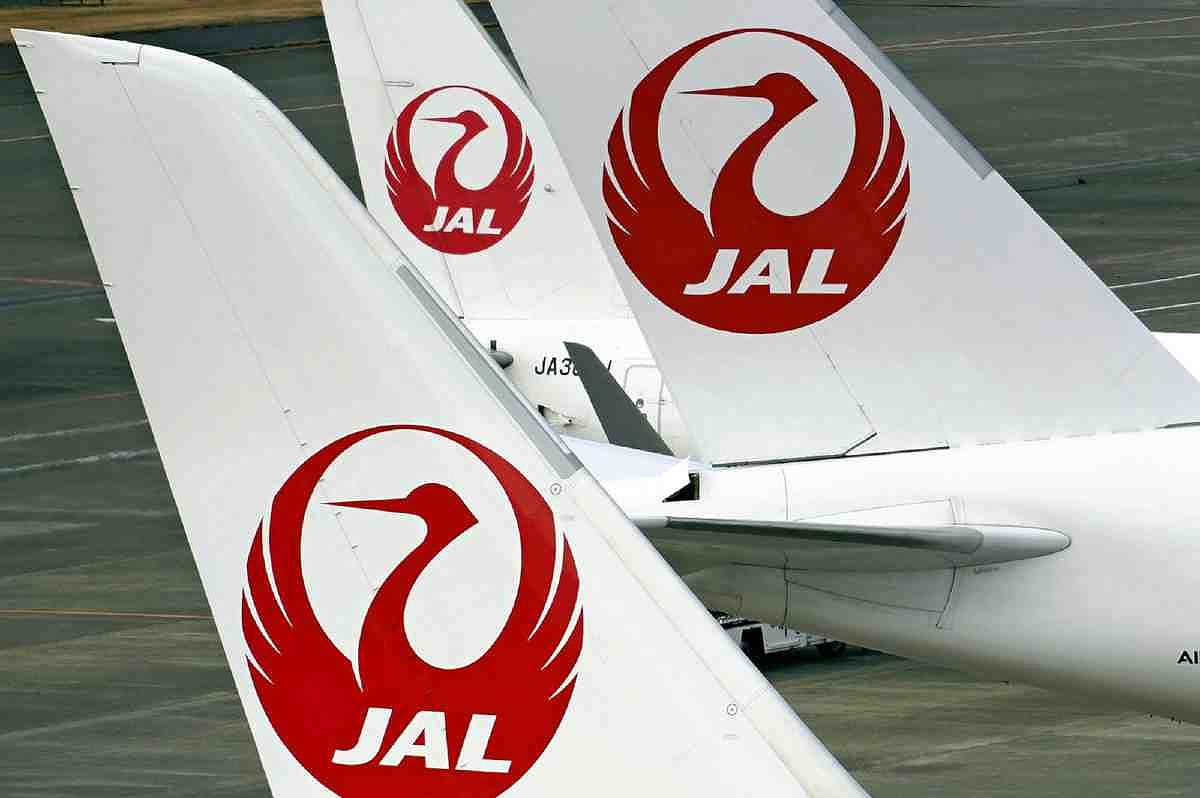Safety Board Issue Report on 2023 JAL Plane Fuel Miscalculation Incident; Airline Asked to Preserve Cockpit Recordings

Japan Airlines airplanes are seen at Haneda Airport.
17:14 JST, March 27, 2025
The Japan Transport Safety Board on Thursday issued a report on a serious incident in 2023, in which a Japan Airlines plane, originally bound for Hakodate Airport in Hokkaido, was found to have insufficient fuel for its flight to an alternate landing site, New Chitose Airport.
The report indicated that the three pilots on board had miscalculated the amount of fuel needed for the alternate landing.
According to the report, JAL Flight 585 departed Haneda on the morning of July 12, 2023, and changed destination after two attempts to land at Hakodate Airport were aborted due to poor visibility. The pilots then decided to instead fly to New Chitose Airport, the alternate landing site selected before takeoff. The aircraft, a Boeing 767-300, was carrying 258 passengers and crew.
When the pilots entered the information of their planned landing using the “north” route to New Chitose Airport into the flight control system at around 9:23 a.m., as instructed by air traffic control, the system displayed “insufficient fuel.” It indicated that the aircraft’s fuel level at the time of landing would be below the “final reserve fuel” level, which is the 4200 pounds (about 1900 kilograms) of fuel required for a 30-minute standby over the airport.
The pilots declared a fuel emergency at around 9:28 a.m., about 78 kilometers south of New Chitose Airport, and informed air traffic control that they could only remain airborne for another 35 minutes. The aircraft landed at New Chitose Airport 17 minutes later at 9:45 a.m.
The aircraft had been loaded with enough fuel for its alternate landing via the “south” route to New Chitose Airport, which has a shorter flight distance, as stipulated in the company’s internal rules. However, the pilots mistakenly believed that they had enough the alternate landing via the “north” route.
JAL mistakenly interpreted the case as “not a serious incident” and let the aircraft continue its operations on the day without preserving its cockpit voice recorder (CVR) recordings. As a result, the audio in the cockpit at the time of the incident was overwritten.
The JTSB pointed out in the report that, as a measure to prevent recurrence, JAL needs to ensure that all its pilots know the stipulated amount of fuel on board for alternate landings and requested the company take measures to have all the CVR recordings preserved.
Top Articles in Business
-

Prudential Life Insurance Plans to Fully Compensate for Damages Caused by Fraudulent Actions Without Waiting for Third-Party Committee Review
-

Narita Airport, Startup in Japan Demonstrate Machine to Compress Clothes for Tourists to Prevent People from Abandoning Suitcases
-

Japan, U.S. Name 3 Inaugural Investment Projects; Reached Agreement After Considerable Difficulty
-

Toyota Motor Group Firm to Sell Clean Energy Greenhouses for Strawberries
-

SoftBank Launches AI Service for Call Centers That Converts Harsh Customer Voices into Softer Voices
JN ACCESS RANKING
-

Japan PM Takaichi’s Cabinet Resigns en Masse
-

Japan Institute to Use Domestic Commercial Optical Lattice Clock to Set Japan Standard Time
-

Israeli Ambassador to Japan Speaks about Japan’s Role in the Reconstruction of Gaza
-

Man Infected with Measles Reportedly Dined at Restaurant in Tokyo Station
-

Videos Plagiarized, Reposted with False Subtitles Claiming ‘Ryukyu Belongs to China’; Anti-China False Information Also Posted in Japan



















